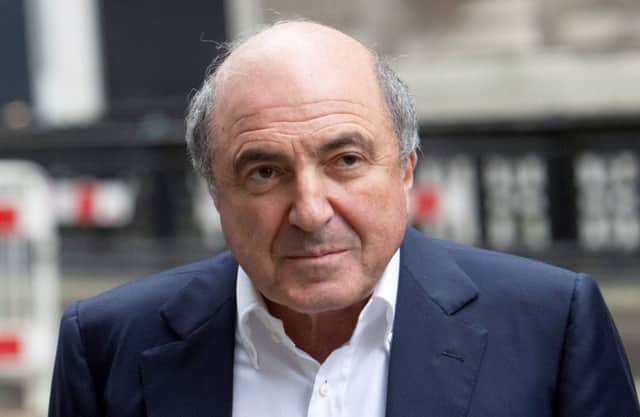MI5 set to probe claims of Russian link to Scot's death


Home Secretary Amber Rudd said MI5 will look at allegations of foul play in a string of fatalities that have been linked to Moscow by US intelligence. They include the death of Dundee-born Scot Young, 52, who died in December 2014 after falling from his London penthouse on to railings.
The move follows the poisoning with a Russia-made nerve agent of former spy Sergei Skripal and his daughter Yulia in Salisbury, Wilshire. As the pair remained critically ill last night, police erected more barriers in the town and said their investigation will take “many weeks”.
Advertisement
Hide AdAdvertisement
Hide AdPrime Minister Theresa May gave Moscow a deadline of midnight last night to explain how the nerve agent was used. But the Russian embassy said it would not respond to “London’s ultimatum” unless it is given access to samples of the substance, and the country’s foreign ministry spokeswoman Maria Zakharova warned Britain “should not threaten a nuclear power”.
An investigation published last year by the BuzzFeed news website identified 14 deaths, including that of Mr Young, which it said had been linked to Russia by US spy agencies.
According to the investigation, Mr Young was part of a circle of nine men including the oligarch Boris Berezovsky who all died in mysterious circumstances on British soil.
In each of the cases, including the deaths of Mr Berezovsky and whistleblower Alexander Perepilichnyy, police investigations found no evidence of foul play.
In a letter to the House of Commons Home Affairs Committee, Ms Rudd said: “The government was aware of these allegations, and takes seriously any suggestion that a foreign state has engaged in murder on UK soil.
“In the weeks to come, I will want to satisfy myself that the allegations are nothing more than that. The police and MI5 agree and will assist in that endeavour.”
In 2015, a coroner decided Mr Young’s death could not be ruled as a suicide due to “inconclusive evidence to determine his state of mind and intention when he came out of the window”.
The Scot, who made his fortune as a property developer, was jailed for six months for contempt of court during his divorce from former wife Michelle, who accused him of hiding assets worth £400m.
Advertisement
Hide AdAdvertisement
Hide AdDuring the inquest into his death, Westminster Coroner’s Court heard he had been treated for bipolar affective disorder and cocaine, cannabis and alcohol abuse since 2011.
Mr Berezovsky, an outspoken critic of Russian President Vladimir Putin, was found hanged in the bathroom of his Berkshire home in 2013. Police said a post-mortem examination showed no sign of a violent struggle, and an inquest recorded an open verdict.
The inquest heard from Professor Bernd Brinkmann, who said he believed the businessman was strangled by someone else and then hanged from the shower rail in the bathroom.
A third case involves Alexander Perepilichnyy, 44, who died while jogging near his Surrey home in 2012. While initial toxicology tests revealed nothing suspicious and police found no evidence of foul play, the presence of a rare and deadly plant toxin was later found in his stomach. An inquest into his death resumes next month.
Former police chief Lord Blair – who led the Metropolitan Police at the time of the poisoning murder of Alexander Litvinenko in 2006 – has called for the 14 cases to be reopened.
It also emerged yesterday that counter-terror police are leading the investigation into the “unexplained” death of Russian businessman Nikolai Glushkov, who claimed political asylum in the UK after being convicted of fraud.
The Metropolitan Police said its specialist unit was looking into Mr Glushkov’s death “as a precaution because of associations that the man is believed to have had”.
There was no evidence linking the death of the 69-year-old former Aeroflot director, and one-time friend of Mr Berzovsky, to the incidents in Salisbury, police said.